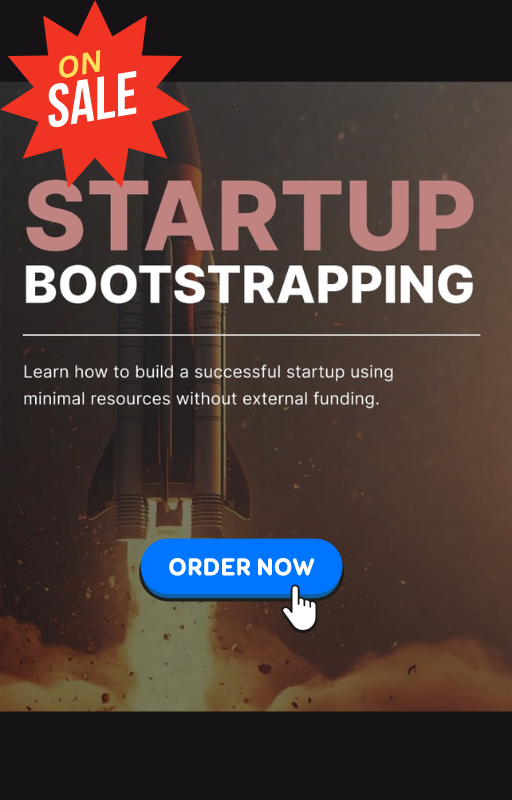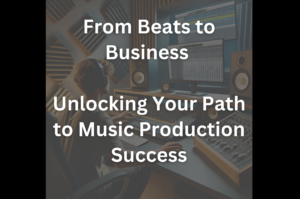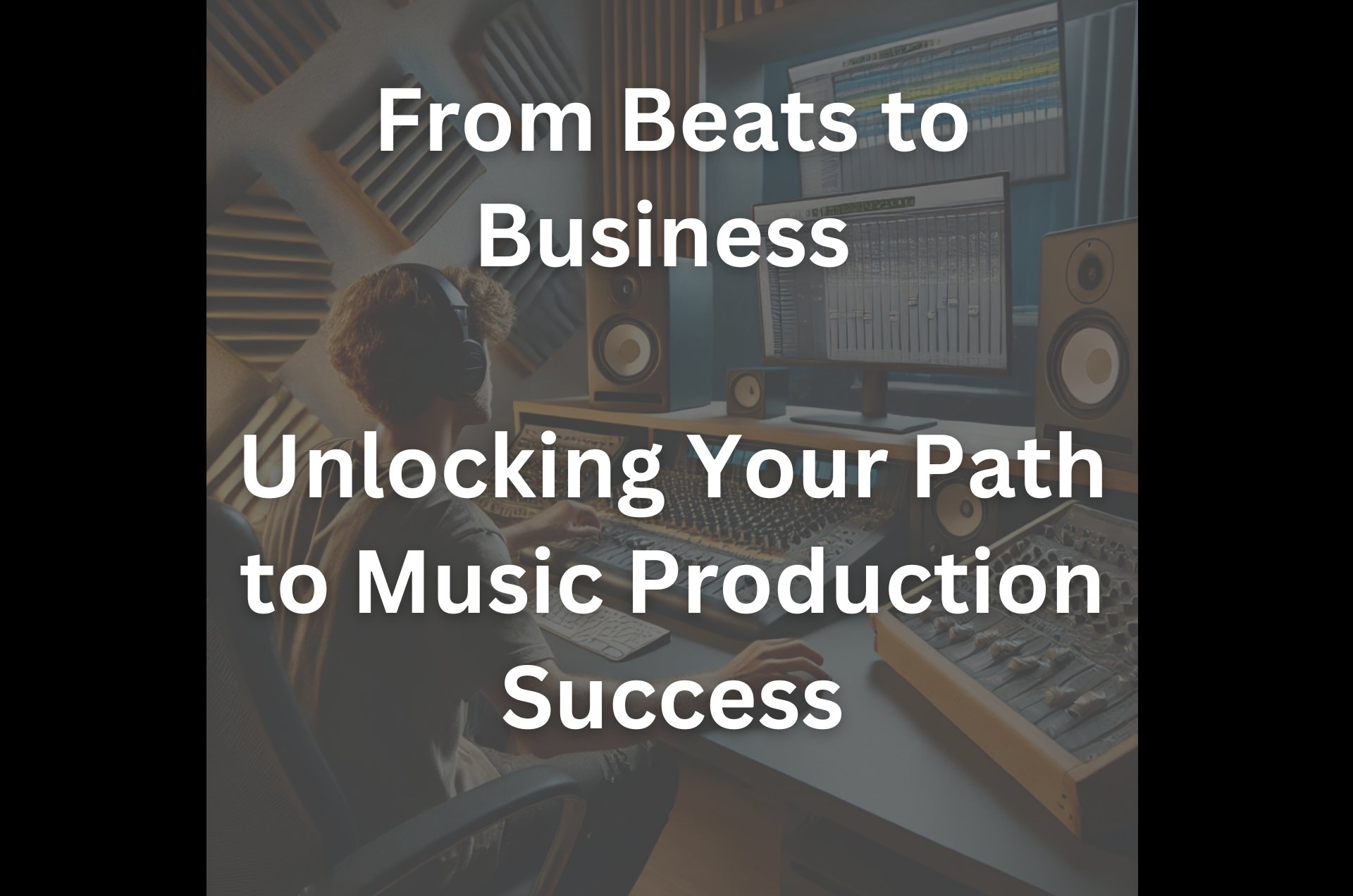**Disclosure:** We believe in honesty and transparency to the fullest extent. Some of the links on this blog are affiliate links, meaning, at no additional cost to you, we will earn a commission if you click through and make a purchase. This is one of the simplest ways you can support us.

Who is this for?
Are you someone who eats, sleeps, and breathes music? Do you feel the rhythm pulsing in your veins and imagine your own musical creations filling the airwaves? If so, this guide is tailor-made for you. Whether you’re a seasoned musician, an aspiring producer, or someone with a deep appreciation for sound, the world of music production offers exciting opportunities to turn your passion into a career.
Who Do You Make Music For?
As a music producer, your role is crucial in bringing the artist’s vision to life. You’re the creative architect behind the music, helping to shape the sound, balance the melody, and elevate the track. Whether you’re producing for pop stars, indie musicians, or soundtracks for films and video games, your skills can inspire and connect with diverse audiences across the globe.
Making Music for a Living
Before diving into the world of music production, it’s important to consider the commercial side. Here’s a breakdown of some of the most lucrative genres that producers can tap into:
Top Lucrative Genres:
- Pop Music: The mainstream appeal of pop makes it one of the most profitable genres. Producers who can craft catchy, radio-friendly tracks with universal appeal can achieve major success.
- EDM (Electronic Dance Music): With a massive global following and dedicated festivals, EDM remains a high-demand genre for energetic, beat-driven tracks.
- Hip-Hop: The flexibility and creativity in hip-hop make it a producer’s playground. Collaborating with artists to create chart-topping hits in various sub-genres can be very rewarding.
- Soundtracks & Commercial Music: Producing music for TV, films, video games, and commercials is another lucrative avenue, offering a broad audience and long-lasting impact.
Essential Things to Be Aware Of
While jumping into music production sounds exciting, there are key elements to keep in mind to ensure long-term success:
Business Savvy: A successful producer not only creates music but also understands the business behind it. Learn about copyright, royalties, contracts, and licensing to protect your work and ensure fair pay.
Time and Patience: Rome wasn’t built in a day, and neither will your production skills. It takes time to develop your unique sound and style, so stay patient and focused.
Technical Knowledge: Creativity is essential, but knowing how to use the tools of the trade is equally important. Master your DAW (Digital Audio Workstation), audio equipment, and mixing techniques.
Collaboration and Networking: Relationships are the backbone of the music industry. Attend events, collaborate with fellow artists, and actively grow your network to open new doors.
Understanding Market Trends: Knowing what listeners want is key. Stay on top of current trends and continuously expand your musical palette by exploring different genres.

Starting Your Journey as a Music Producer
- Define Your Musical Style The first step is finding your niche. What genre excites you? Study the tracks you love, break down the production techniques, and identify how you can incorporate your own spin. This will help you carve out a distinctive sound that sets you apart from other producers.
- Learn the Basics There are countless online resources to help you master music production. Some popular platforms include:
- YouTube Tutorials: Free and accessible, YouTube offers tutorials on everything from mixing techniques to sound design.
- Online Courses: Platforms like Coursera, Udemy, and Soundfly offer structured courses that cover everything from beginner to advanced levels.
- Invest in the Right Equipment Having the right tools is essential for high-quality production:
- Digital Audio Workstation (DAW): Software like Ableton Live, Logic Pro, or FL Studio is your virtual studio.
- Audio Interface: This device connects instruments and microphones to your computer, ensuring high-quality sound.
- Studio Monitors: Accurate sound reproduction is vital for mixing and mastering, so invest in good-quality monitors.
- Practice Daily Like any art form, producing music requires consistent practice. Start small—experiment with sounds, build beats, and play around with effects. As your confidence grows, begin crafting complete tracks to showcase your developing style.
- Build Your Network The music industry thrives on connections. Attend workshops, participate in online forums, and engage with other producers and musicians. Collaboration not only provides learning opportunities but can also lead to exciting projects.
- Create and Share Your Work Build a portfolio of your best tracks and share them on platforms like SoundCloud, Spotify, or Bandcamp. Having a presence online is key to gaining exposure and building an audience for your music.
- Learn from Industry Experts Consider signing up for mentorship programs or workshops hosted by established producers. Getting feedback from those with more experience can help you refine your skills and make industry connections.
- Focus on Branding Once you’ve built a body of work, consider branding yourself. Develop a professional logo, set up a website, and create a strong social media presence to engage with fans and potential clients.
Ready to Take the Leap?
The road to becoming a successful music producer is filled with creativity, hard work, and perseverance. The key is to stay passionate, continue learning, and build strong connections in the industry. Start creating, stay dedicated, and remember—your unique sound is what the world is waiting for.










